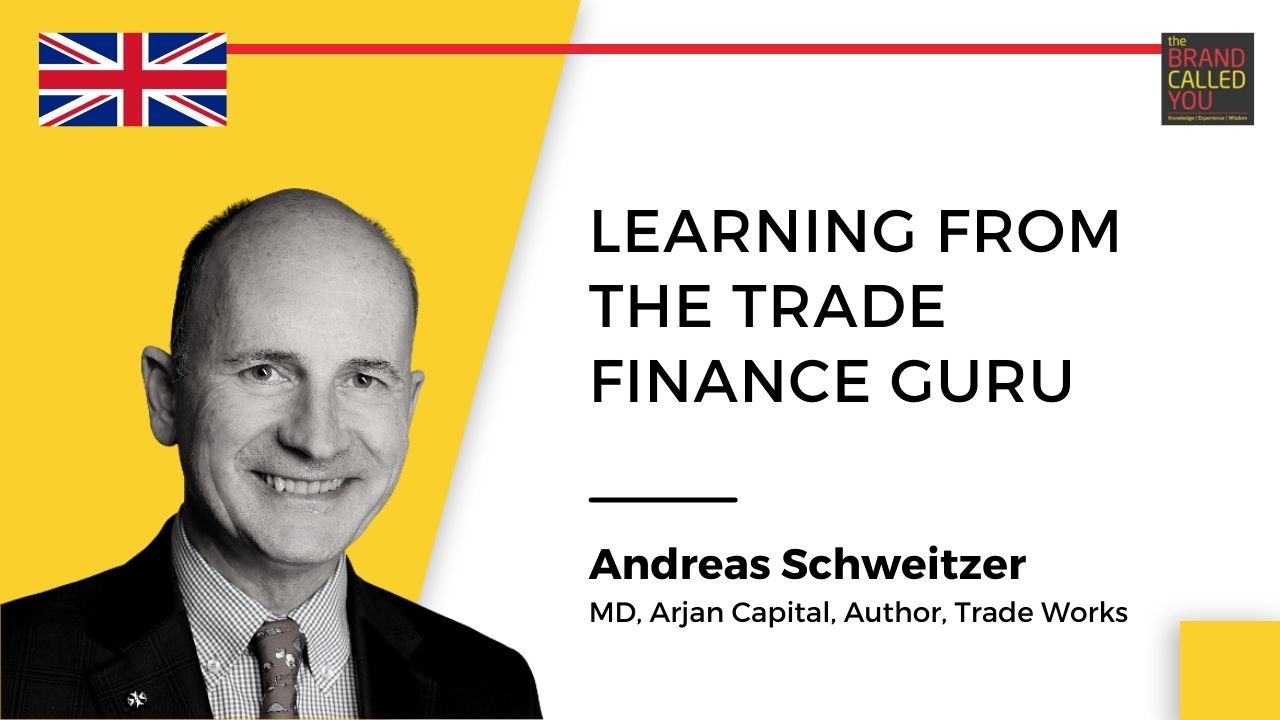Andreas Schweitzer, MD, Arjan Capital, Author, Trade Works
Managing Director and Co-Founder of Arjan Capital Ltd, London. We assist European companies in executing their strategy and trades with Central Asia.
Podcast
Overview
Finance is one of the major pillars of every business. It is quite a task to attract finance to your trade. However, trade finance is a huge industry of the world and so is the risk involved. Today, we introduce you to Andreas Schweitzer, the Managing Director of Arjan Capital. He is a finance specialist. Andreas has also authored a book titled, ‘Trade Works’. In the cognizant conversation with our host Mr. Aushotosh Garg, Andreas takes us on a tour of the Trade Finance World. We become acquainted with the different forms of trade finance and how this industry actually operates. We also get to know about the risks and barriers both parties face.
Discussion
What is Trade Finance and why is it important for organizations
While talking about trade, Andreas says that if trade were not there, there would be no toothpaste in the bathroom and there would be no water in our refrigerator. He states that the trade roughly accounts for 10 trillion dollars in the world, out of which, about 20% does not get financed. These 20% generally include the small and medium enterprises which are turning out to be an issue now.
Forms of Trade Finance
Andreas tells us that there are different forms of trade finance. He explains they are factoring, supply chain financing, forfeiting, overdraft, working capital, etc. He calls the first two to be the two main forms of financing.
Obstacles that SMEs face in obtaining finance
Andreas tells that since the big financial crisis in 2008, there have been many restrictions on the banks to trade finance. Under this situation, large banks are only willing to deal with large companies, thus the SME markets are suffering.
Risks Involved
Andreas affirms that there is risk involved but also believes that trade finance takes place on trust. However, he introduces us to several tools present to lower the risk of deceit. The tools can be a letter of credit, credit insurance, export credit. He also says that researching the creditor before trade financing also helps in risk mitigation.
Managing a business in difficult countries
In Andreas’s opinion, the best risk is the risk that one removes. Hence, he avoids dealing with countries that are difficult to handle and where they might end up in court. He gives an example and says that he considers his company to be a small one and does not see his company arguing in Chinese courts. He sticks to the countries whose jurisdiction is not complicated so that the cost might not exceed the reward.
Duration of a Trade Finance deal
Andreas tells us that trade finance is a very quick cycle. Starting from 10 days, it does not generally go beyond 5 months. In most cases, it is a 6 week-long deal.
Trade-in Iran and Afghanistan
Speaking of Iran, Andreas says that Iran is a highly regulated country. The rules there are very complicated, so they are currently helping with imports there. For Afghanistan, Andreas tells us that the main issue with the country before August was not having a country rating from big agencies. Currently, with the toppling of the previous government there, they are unable to judge the situation and it is on a waiting list until the commercial flights resume.
Role of governments in safeguarding trade finance
In Andreas’s opinion, the government can encourage banks to provide loans to SMEs, but, it is very difficult as banks have faced a lot of issues in the past decade, they could only take risks if the government ensures it. He also suggests that the government should support the existence of SMEs very strongly.
Application of the Demand-Supply theory on Trade Finance
Andreas affirms that the economic theory of demand and supply does apply to trade finance. However, he believes it to be limited to some extent, because like any other service, it also has a certain value people are willing to spend.
About Andreas’s book ‘Trade Works’
Andreas tells us he just put down on paper whatever he found in the industry. He says that there is not a lot of research done on this topic. There is research and study material on foreign exchange, stock market, bonds, real estates, etc. but not about trade. Very few organizations like the World Bank etc have some publications about it. So Andreas decided to write about it. He calls it, “explaining to a non-financial professional, what trade entails”.
Profile
Managing Director and Co-Founder of Arjan Capital Ltd, London. We assist European companies in executing their strategy and trades with Central Asia. We provide short-term equity to co-invest in short-term trade where banks don’t. Previously I created and co-managed a CHF 200 M market-timing fund and held management positions at Jacobs Suchard (now Kraft Foods Schweiz AG), I serve on a number of SME boards and am an active member of the Young Presidents’Organization (YPO). www.ypo.org In 2015 I have been elected Honorary Senator of the (German) Federal Senate to promote Economy and Technology. (Wirtschaftskomitee Deutschland e.V. (WBA), Bundessenat für Wirtschaft und Technologie)


